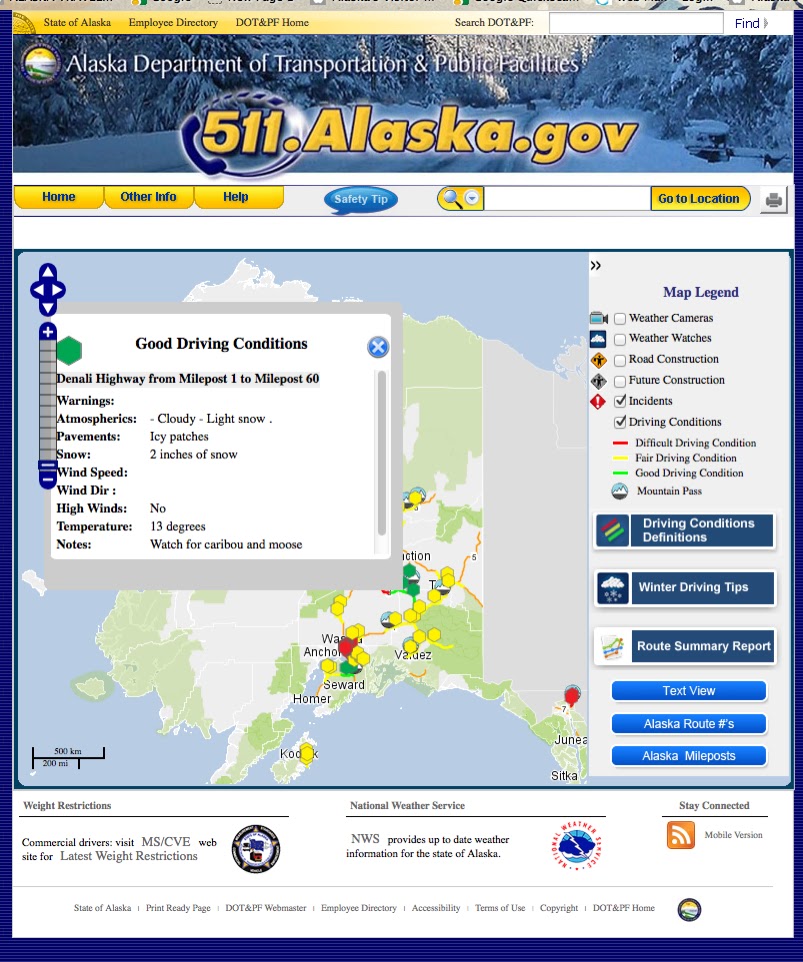Senators From Alaska, Hawaii & Oregon Ask RFK Jr. To Honor Indian Health Service Obligations
Tazlina CRNA Medical Facility. (Photo, Country Journal) There Are 2.8 Million American Indians & Alaska Natives Affected By The Indian...

Tazlina CRNA Medical Facility. (Photo, Country Journal)
There Are 2.8 Million American Indians & Alaska Natives Affected By The Indian Health Service & Possible Cutbacks

The Honorable Robert F. Kennedy, Jr. Secretary
Department of Health and Human Services 200 Independence Avenue, SW Washington, D.C. 20201
Dear Secretary Kennedy:
We write to express our deep concerns regarding the Indian Health Service’s (IHS) ability to meet its health care obligation amid recent federal actions that diminish the quality of and access to health care and erode the federal government’s trust responsibility by failing to meaningfully consult with Tribal governments. We urge you to take immediate action to ensure that the IHS programs serving Native communities have the resources and staffing necessary to fulfill their missions and halt any further actions affecting Tribal health care delivery without first engaging in meaningful Tribal consultation.
The IHS provides health care services to approximately 2.8 million American Indians and Alaska Natives, an obligation enshrined in federal law, treaties and through the trust responsibility. As trustee, you must know that the IHS service population is among the most vulnerable in our nation, falling behind in nearly every health metric. American Indians and Alaska Natives experience disproportionate rates of mortality from most major health issues, including chronic liver disease and cirrhosis, diabetes, unintentional injuries, assault and homicide, and suicide, and currently have an average life expectancy equal to that of the general U.S. population living in 1944.1 Accordingly, the National Indian Health Board recently passed a resolution emphasizing the need for continued and increased staff at IHS, urging the federal government to exempt the IHS and other Indian health programs from any staffing cuts and to instead commit to prioritizing hiring for Tribal health programs, including the IHS.2 So while we appreciate that you have exempted IHS from probationary employee staffing reductions and exempted a limited number of IHS employees from the hiring freeze to date, it is critical that other Native-serving agencies within your Department be treated similarly.3
1 FY2025 Indian Country Budget Hearing – Testimony provided by the Indian Health Service (May 15, 2024)https://www.appropriations.senate.gov/imo/media/doc/download_testimony75.pdf. American Indian and Alaska Natives also face higher rates of colorectal, kidney, liver, lung, and stomach cancers than non-Hispanic White people.
2 National Indian Health Board, Resolution 2025-24 (Mar. 11, 2025), available at https://www.nihb.org/wp- content/uploads/2025/03/25-04-Resolution-on-IHS-Exemption-from-RIF-in-EO-14210.pdf
3 For example, recent staffing cuts at the Centers for Disease Control’s (CDC) Healthy Tribes Program threaten to rollback chronic disease prevention advancements particular to Native communities. And with the recent HHS announcement that CDC will decrease its workforce by 2,400 employees, National Institutes of Health by 1,200, and Centers for Medicare and Medicaid Services (CMS) by 300, with additional cuts pending in future reductions in
The impacts of the hiring freeze for other positions playing crucial roles administering services at IHS continues to exacerbate existing clinical staffing issues. IHS cannot deliver quality health care without sufficient personnel – not just physicians, nurses, dentists, and mental health professionals, but also laboratory technicians who perform tests and process and collect specimens, and administrative personnel who perform essential tasks, including billing, appointment scheduling, and ensuring IHS facilities maintain their accreditation. Additionally, the civilian staff reductions at the U.S. Public Health Service (USPHS) headquarters threatens support functions for approximately 1,200 USPHS officers serving at IHS and Tribal facilities. The loss of administrative infrastructure for payroll, assignments, and special pays will disrupt healthcare delivery in remote Tribal communities. In short, all these positions are imperative to delivery of wrap around health care services to American Indian and Alaska Natives, and staffing cuts, hiring freezes, and staff buyouts are exacerbating the already chronic problem of understaffing at IHS.4
Such cuts also put IHS facility accreditation in danger, as understaffed facilities have little chance of meeting accreditation standards. Losing accreditation would further erode trust in the system and limit access to life-saving care for Native communities. Additionally, staffing issues can negatively impact the ability of a facility to meet the CMS Medicare Conditions of Participation and Coverage (COPs) or Conditions for Coverage (CFC) requirements. Several high-profile instances where IHS hospitals were found to be in severe condition previously led inspectors from the Centers for Medicare and Medicaid Services (CMS) to threaten the loss of Medicare and Medicaid reimbursement and participation in third-party insurance networks.5 The all too frequent occurrence of incidents that put IHS facility accreditation in jeopardy are precisely why Congress provides $58 million annually for accreditation emergencies: to help IHS make emergency hires to maintain accreditation -- and ultimately save lives.
Finally, we must remind you that meaningful Tribal consultation should be at the forefront of any discussions regarding potential changes at HHS, including the IHS. This foundational tenet of the federal government’s trust relationship empowers Tribes to be a part of policymaking on a government-to-government basis. We are concerned about reports that senior officials from HHS agencies are being reassigned to IHS positions in Alaska, Montana, and Oklahoma without
force, impacts to non-IHS Native-serving agencies within HHS is concerning. See https://www.hhs.gov/press- room/hhs-restructuring-doge.html.
4 Last year, IHS experienced nearly 2,000 vacancies, and a 2018 GAO report found that IHS had an overall health care provider vacancy rate of 25 percent across service areas. See IHS Workforce Parity Act and Tribal Access to Clean Water Act of 2023: Hearing on S. 4022 and S. 2385 Before the S. Comm. on Indian Affs., 118th Cong. 1 (2024); S. GOV’T ACCOUNTABILITY OFF., GAO-18-580, INDIAN HEALTH SERVICE: AGENCY FACES ONGOING CHALLENGES FILLING PROVIDER VACANCIES 9-10 (Aug. 2018) (statement of Melanie Anne Egorin, Assistant Sec’y for Legis., U.S. Dep’t of Health & Human Res.).
5 For example, between 2015 and 2017, CMS inspectors found that a baby was born in a bathroom at the Rosebud IHS hospital and, in another instance, a heart attack victim did not receive care for 90 minutes (in fact, the emergency room had been closed for six months). CMS officials also witnessed repeated deficiencies in the emergency room at the IHS hospital in Pine Ridge. At that facility, officials reported that a diabetic man who said he had gone days without insulin was forced to wait two hours before receiving care, at which point his glucose levels were severe enough to cause organ damage. He ultimately died the next day after he needed surgery to treat a severely damaged small intestine. See Roll Call – The Never Ending Crisis at the Indian Health Service (2018) https://rollcall.com/2018/03/05/the-never-ending-crisis-at-the-indian-health-service/
consideration of Tribal needs, Indian Preference requirements, or IHS service priorities. It appears that HHS has failed to meaningfully consult with Tribes on recent actions, which has negatively impacted the federal-Tribal relationship, and we urge you to seek Tribal input and consult on any future federal action impacting their interests.
Native communities deserve reliable access to quality health care, and we urge you to reevaluate all actions that jeopardize delivery of any health care services for American Indians and Alaska Natives. We look forward to your prompt response and request a bipartisan meeting with you and the Senate Appropriations Committee and the Senate Committee on Indian Affairs staff to address our concerns set forth above.
Jeffrey A. Merkley
Ranking Member, Subcommittee on Department of the Interior, Environment, and Related Agencies Committee on Appropriations
Sincerely,
Brian Schatz
United States Senator
Vice Chairman, Committee on Indian Affairs
Lisa Murkowski
United States Senator Chairman, Committee on Indian Affairs and
Chairman, Subcommittee on Department of the Interior, Environment, and Related Agencies
Committee on Appropriations
















